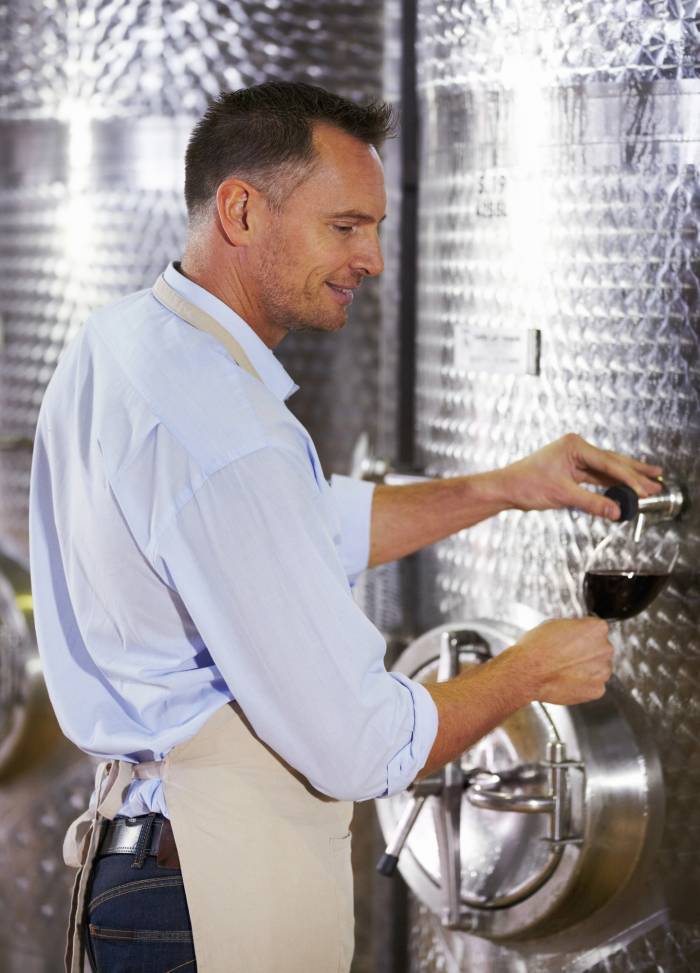Les prix des vins en vrac de Bordeaux chutent à 1€ par litre, en dessous des coûts de production
Les viticulteurs français sont confrontés à des pertes croissantes en raison de l'évolution des habitudes de consommation, des campagnes de santé et des pressions mondiales qui remodèlent l'avenir du secteur.
19-11-2025

Lors d'une récente conférence à Bordeaux, la crise économique et sociale à laquelle est confrontée la filière viticole de la région a été mise à nu. Christophe Chateau, directeur de la communication du Conseil interprofessionnel du vin de Bordeaux (CIVB), s'est adressé à un public de professionnels de l'immobilier et du vin le 13 novembre à l'InterContinental Bordeaux. Il a décrit un marché où les vins génériques de Bordeaux se vendent désormais à des prix bien inférieurs à leurs coûts de production. Selon M. Chateau, le prix moyen du vin rouge de Bordeaux en vrac au cours des trois dernières années a été d'environ 1 euro par litre, soit moins cher que l'huile d'olive et parfois même moins cher que le vinaigre.
M. Chateau explique que cette situation n'est pas viable pour de nombreux producteurs. "Lorsqu'un viticulteur vend un tonneau de 900 litres à 900 euros, alors qu'il coûte 1 800 euros à produire, ce n'est pas le bon prix", a-t-il déclaré. Le CIVB a rapporté un prix moyen de 943 euros par baril pour la saison 2025-2026, avec des prix chutant à 793 euros en octobre 2025. Ces chiffres mettent en évidence la pression financière qui pèse sur les viticulteurs bordelais, en particulier ceux qui produisent des vins génériques.
Les causes de cette crise sont complexes. M. Chateau a mis en évidence deux facteurs principaux : la baisse de la consommation et les préoccupations croissantes en matière de santé. En France, le vin n'est plus considéré comme un produit alimentaire de base, mais plutôt comme un produit de loisir, ce qui incite les consommateurs à réduire leur consommation en période de crise économique. Les campagnes sanitaires telles que "Dry January" et l'intensification de la lutte contre l'alcoolisme ont également contribué à la baisse de la demande.
Les défis structurels ont été aggravés par les événements récents. Les coûts de production liés au climat ont augmenté et les tensions géopolitiques ont affecté les exportations. En réponse, le CIVB a adopté une stratégie axée sur la réduction de la production et le soutien des efforts de commercialisation. Au cours des quatre dernières années, Bordeaux a arraché environ 20 000 hectares de vignes, l'objectif étant d'atteindre 85 000 hectares d'ici à 2025. Le conseil investit également dans des campagnes de promotion qui mettent en valeur les viticulteurs locaux et dans des programmes de formation par l'intermédiaire de son école du vin.
Malgré ces difficultés, M. Chateau reste confiant dans la réputation de Bordeaux. "Bordeaux est une marque très forte", a-t-il déclaré, notant qu'elle reste l'appellation la plus reconnue par les consommateurs français. Cependant, il reconnaît que certains professionnels du vin, en particulier à Paris, promeuvent des régions moins connues au détriment de Bordeaux.
La crise ne se limite pas à Bordeaux. M. Chateau a relevé des problèmes similaires dans d'autres grandes régions viticoles du monde, notamment dans la Napa Valley, en Californie, où certains vignobles sont abandonnés parce que les prix du marché ne couvrent pas les coûts de production. Il a averti que si la consommation mondiale continue de baisser plus rapidement que les vignobles ne sont arrachés, la crise persistera.
Pour l'avenir, M. Chateau espère que la stabilité géopolitique et la reprise économique permettront de rééquilibrer l'offre et la demande. Il voit un potentiel de croissance dans des marchés tels que l'Afrique, l'Inde et l'Amérique du Sud. Toutefois, il a souligné que les efforts nationaux sont également cruciaux. Les cavistes et les restaurants français restent des cibles privilégiées pour les producteurs de Bordeaux qui cherchent à redorer leur blason et à renouer avec les consommateurs.
M. Chateau a admis que les erreurs du passé ont contribué aux défis actuels. Au cours des années précédentes, certains producteurs de Bordeaux ont privilégié les exportations vers la Chine au détriment des relations avec les détaillants et les restaurateurs locaux, ce qui leur a aliéné d'importants partenaires dans leur pays. "Nous devons revenir en arrière et leur montrer que Bordeaux offre l'un des meilleurs rapports qualité-prix au monde", a-t-il déclaré.
Arnaud Roux-Oulié, propriétaire du Château Carlmagnus à Fronsac, s'est fait l'écho de ces préoccupations concernant l'évolution des modèles commerciaux. Il a suggéré que les viticulteurs pourraient être amenés à jouer un rôle plus actif dans les ventes et le marketing à mesure que les négociants en vin traditionnels se désengageront. "S'il n'y a pas de viticulteurs, il n'y a pas de négociants", a-t-il déclaré. "Mais les viticulteurs sans négociants peuvent encore fonctionner.
Chateau et Roux-Oulié sont tous deux d'accord pour dire que les viticulteurs d'aujourd'hui doivent s'adapter pour survivre. Cela signifie qu'ils doivent adopter de nouvelles compétences telles que la gestion des médias sociaux et la promotion du tourisme viticole, des domaines autrefois considérés comme n'entrant pas dans le champ d'application traditionnel de la viticulture.
M. Chateau a également abordé la question de la fixation des prix des vins de haut niveau, notant que même les crus classés prestigieux pourraient devoir baisser leurs prix s'ils veulent trouver des acheteurs sur le marché actuel.
La situation à Bordeaux reflète les changements plus larges qui affectent les régions viticoles du monde entier : changement des habitudes des consommateurs, incertitude économique et évolution des attentes concernant la manière dont le vin est commercialisé et vendu. Pour de nombreux producteurs de la région viticole la plus célèbre de France, l'adaptation n'est plus facultative, elle est essentielle à la survie.
Fondée en 2007, Vinetur® est une marque déposée de VGSC S.L. qui a une longue histoire dans le secteur du vin.
VGSC, S.L., dont le numéro de TVA est ESB70255591, est une entité inscrite au registre du commerce de Saint-Jacques-de-Compostelle, Spagna.
Email: [email protected]
Sede e uffici a Vilagarcia de Arousa, Galice.